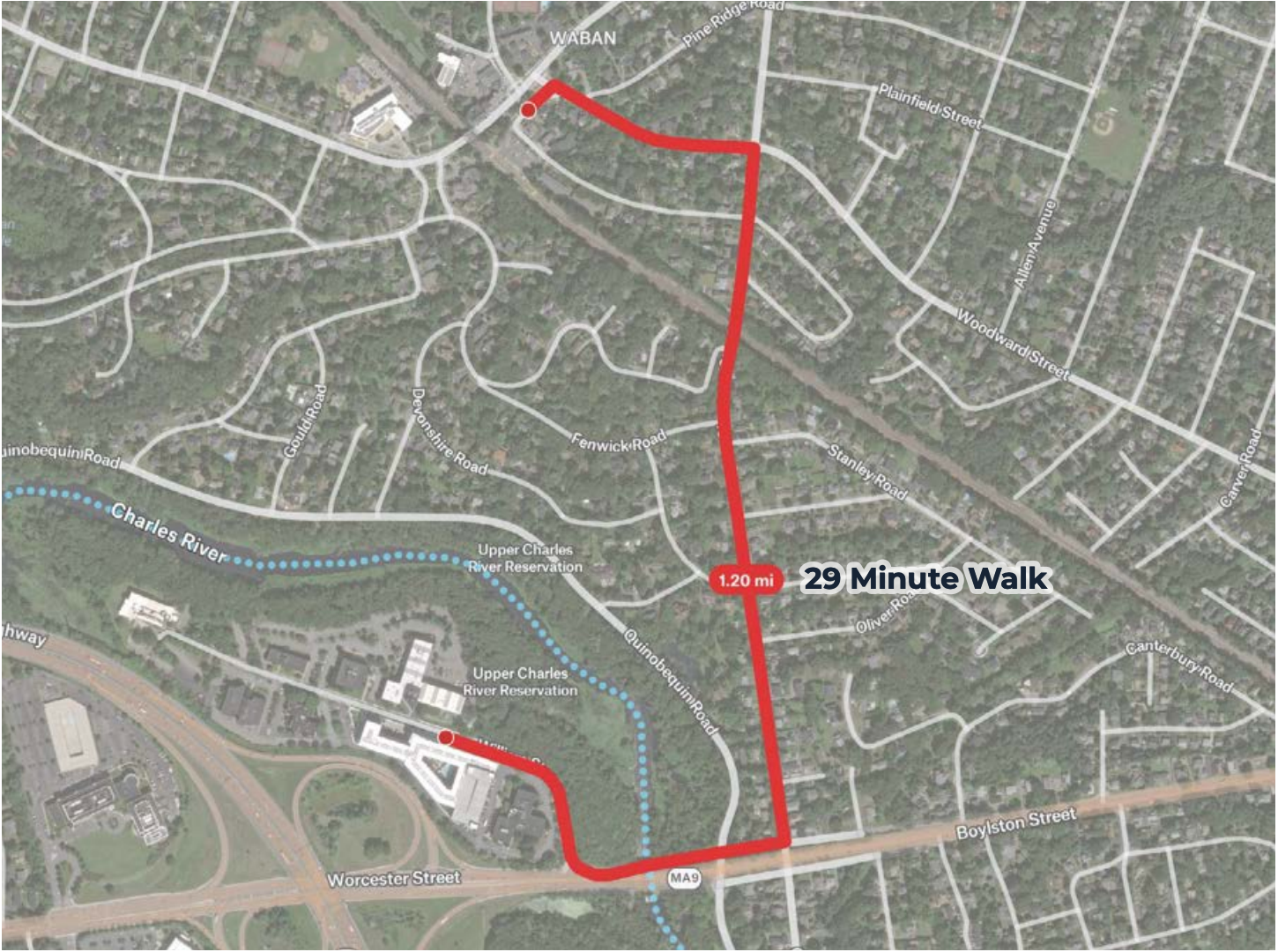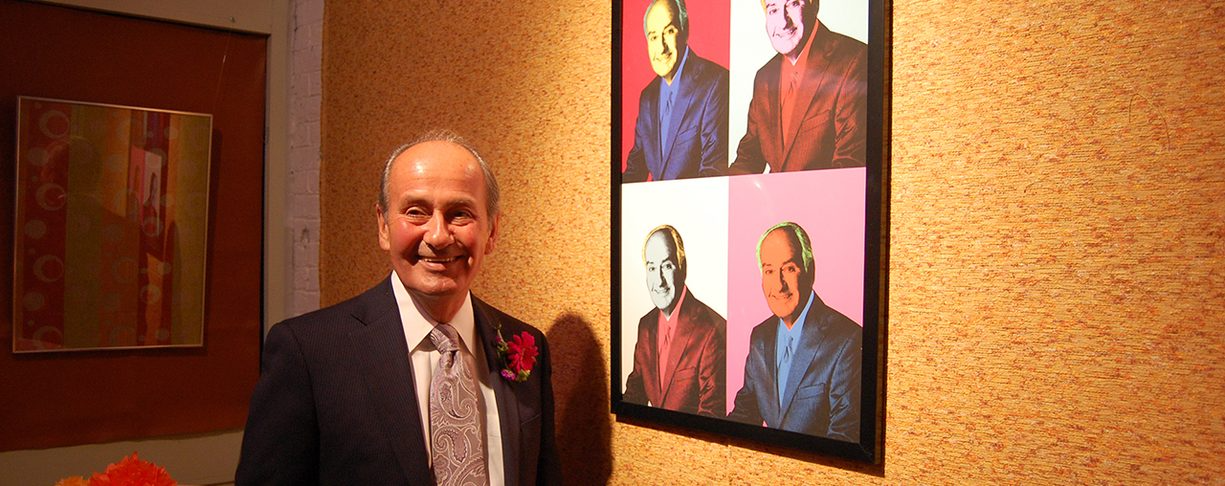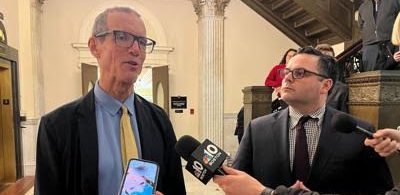A tale of three (MBTA) communities

A tale of three (MBTA) communities
Good morning friends,
For more than two decades, the Boston Foundation/Boston Indicators’ “Greater Boston Housing Report Card” has been the go-to resource for understanding our region’s housing landscape — our progress and our lack of progress.
The new report, released this week, notes some incremental gains. But overall it’s sobering — except when it's alarming.
Here’s one example: Over the past decade (2015-2025), median condo prices rose 65% in Newton; 37% in Needham; 51% in Watertown; and 98% in Wellesley.
And another: While a household income of just under $98,000 would be considered enough to afford a monthly mortgage payment for a starter home in 2021, four years later, a household needs an income of over $162,000.
I encourage you to read the report, watch a presentation and panel and check out the Globe’s summary, but this morning I want to call your attention to another part of the report:
A tale of three (MBTA) communities
The Housing Report Card also features a case study comparing how three municipalities implemented the MBTA Communities Law and the housing production potential in each, which — some seem to forget — was the desire when MBTA-C became law in 2021.
It should be required reading in advance of future efforts to modernize and strengthen zoning reform and maybe spark discussion of local referendum laws.
And I have to say, seeing which three communities Boston University researchers chose for its case studies triggered a whole lot of déjà vu — maybe even a touch of PTSD — for me, and perhaps for many of you: Wellesley, Needham and Lexington.
- Lexington earned the authors’ praise. The town initially passed a plan far more ambitious than required. Even after it was scaled back, it’s still expected to “generate Lexington’s most rapid growth since at least the 1980s.” The authors also applauded the way the town successfully worked to engage the community but “avoid vocal and sometimes intimidating crowd dynamics.”
- The analysis of Needham was more mixed and the debate turned acrimonious. Town Meeting originally approved an ambitious plan, only to have it replaced following a referendum with a version, the report concludes, “without allowing for much new housing.”
- The authors were most critical of Wellesley, finding that town staff drafted a compliance plan with minimal public process — one aimed primarily at securing Town Meeting approval and checking the boxes required by state law. There was little public input and little discussion about using the law to create housing opportunities for young families, seniors and workers.
“Wellesley had the easiest process politically of the three communities,” the authors wrote. “It achieved this streamlined approval by emphasizing following the letter of the law and receiving a favorable decision from the state rather than using the legislation as an opportunity to ameliorate the local housing crisis.”
The Report Card also includes a map (below) noting that The Nines (which comprises more than 60% of Wellesley’s MBTA-C plan) is situated within a half mile of the Waban MBTA station, as the law requires. However, “the actual walking distance is more than a mile.”
 |
Newton’s Labshares expanding to Watertown
Labshares — the coworking lab space for biotechs in Nonantum — is expanding into Watertown.
The company will lease nearly 58,000 SF at 66 Galen Street, bringing its total footprint to more than 100,000 SF of shared lab and office space, reports the BBJ’s Hannah Baratham-Green.
Labshares is currently operating at nearly 90% occupancy at 55 Chapel Street and 90 Bridge Street in Newton. Twenty-five companies — from seed-stage startups to publicly traded firms — lease space there.
The new Watertown facility will allow Labshares to roughly double the number of companies it supports.
It also pushes the 224,000-square-foot life science building developed by the Davis Companies and Boston Development Group to about 95% leased — quite a turnaround for a property once viewed as the poster child for the region’s lab-space glut.
Yesterday, a more triumphant headline on Jon Chesto’s Globe story read: “Greater Boston’s hottest lab building isn’t in Kendall Square. It’s in Watertown.”
John S. Airasian remembered for love of community
 |
Watertown News has a lovely appreciation of the late businessman, community leader and philanthropist John S. Airasian.
Airasian co-owned and operated Eastern Clothing for nearly half a century and was deeply involved in civic life, serving on the Watertown-Belmont Chamber, Rotary Club, Arsenal Reuse Committee, Mosesian Center for the Arts, and many others.
“…many will remember Airasian for his friendly demeanor, desire to help others, and his love of his hometown,” writes Charlie Breitrose.
“Watertown became his fourth child. It was in his blood. He couldn’t get enough of it. He was like a one-man PR firm, with his only client being Watertown,” said his son Bob at Wednesday’s funeral.
Friday grab bag
- Someone is thinking about challenging Congressman Jake Auchincloss in next year’s Democratic primary. But who? (WPRI)
- Trader Joe’s opened at Newton Nexus on Needham Street yesterday.
- NAIOP is rebranding. They’ll become CREDA (Commercial Real Estate Development Association) next July. (BBJ)
- The scheduled auction of the Turtle Lane Playhouse location in Auburndale was recently postponed for a second time. The new date is Dec. 4. (Newton Beacon)
- Salem Five Bank is launching a new private-banking practice and has hired Veronica Tamburrini-Caira, formerly with Enterprise Bank, to lead it. (BBJ)
- A new food code is raising concerns in Needham. (Needham Observer)
- Yes, there are alligators — or at least there was one — in our favorite river.
- The Cooper Center for Active Living’s grand opening in Newtonville is Dec. 5 at 10 a.m. You’re invited.
- Is there anyone you know who could benefit from chamber membership? Introduce us. When they join, we'll thank you with a $25 gift card to a restaurant member of your choice.
Parking, affordable housing, on Newton council agenda
On Monday (Nov. 17), the Newton City Council will vote on two items that we support.
The first would eliminate or reduce commercial parking minimums in the city, making it easier for businesses to invest, expand and adapt to evolving customer needs.
Here’s the letter we sent to the Zoning & Planning Committee outlining why these reforms matter and urging councilors to advance the proposal—which they did, nearly unanimously.
Also on the agenda is a proposed update to Newton’s inclusionary zoning ordinance.
Currently, any housing development with more than six units must designate a percentage of those units — on a sliding scale — as affordable. Developers of smaller projects (nine units or fewer) may instead contribute to the city’s Affordable Housing Trust.
The proposal would extend the alternative compliance option to projects of up to 19 units.
This change would make it easier for small developers to build in Newton; generate additional affordable housing through the trust; and streamline the city’s ability to monitor and manage its affordable units.
Is Wu plotting payback against Brownsburger?
 |
Finally, a report this week suggests that Boston Mayor Michelle Wu may be scouting for someone to challenge Sen. Will Brownsberger in 2026.
The Watertown–Belmont–Boston lawmaker was first elected in 2012 and hasn’t faced a challenger in more than a decade.
But MASSterlist reports that Wu might still be fuming after Brownsberger and Sen. Nick Collins of South Boston helped tank her property tax shift plan last year.
“First I’ve heard,” Brownsberger told State House News Service’s Gintautas Dumcius.
The senator, who backed Wu in her last race, added, “People don’t always agree on everything, but that’s never been a barrier to me supporting other people.”
Wu’s proposal would have temporarily shifted more of the property tax burden onto commercial properties to avoid a large residential tax bill spike.
And that’s what you need to know for today — World Kindness Day — unless you need to know about the college kid who did a wheelie—for six-and-a-half hours. And 93 miles.
RIP: The penny
Shop and dine local, please.
President & CEO
Charles River Regional Chamber
617.244.1688
Max Woolf contributed to today’s newsletter.
